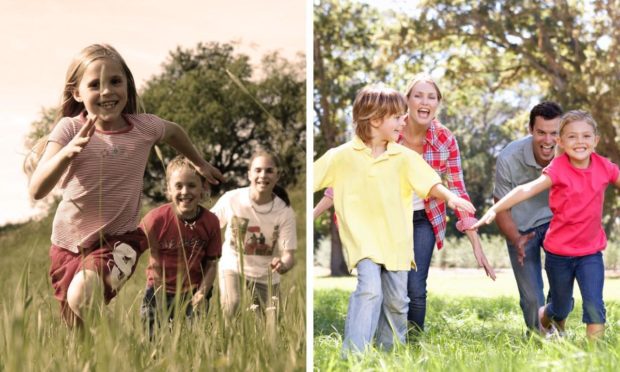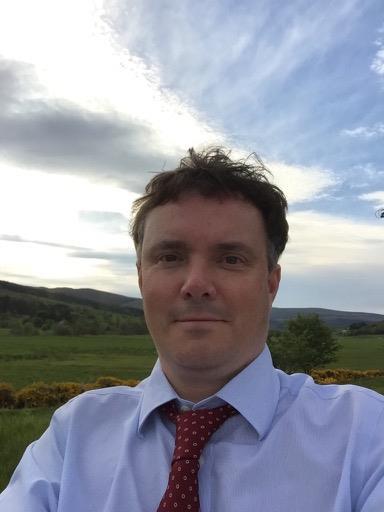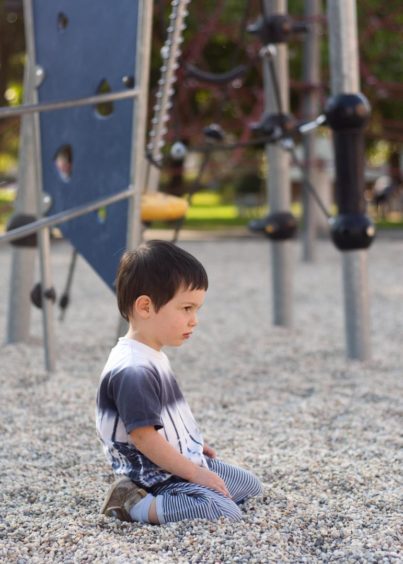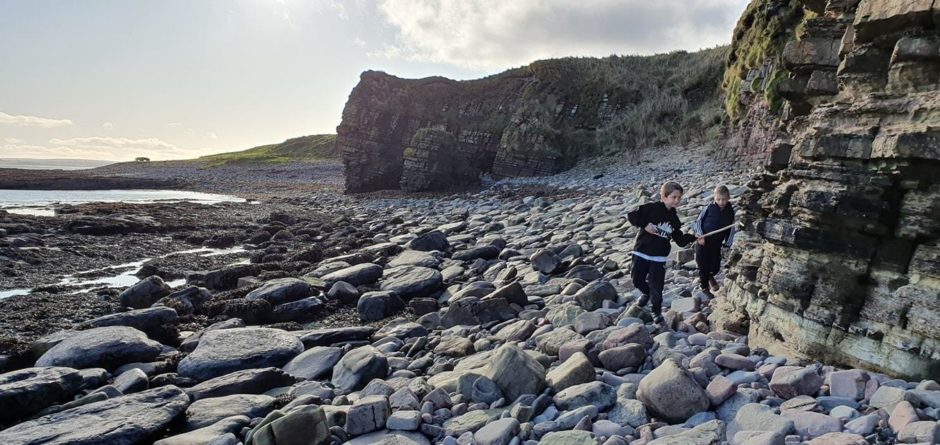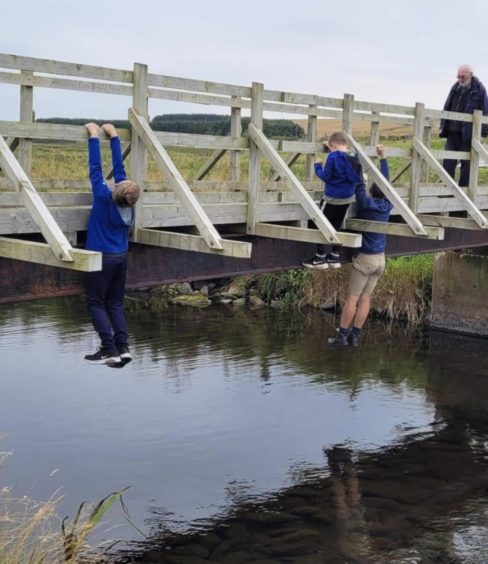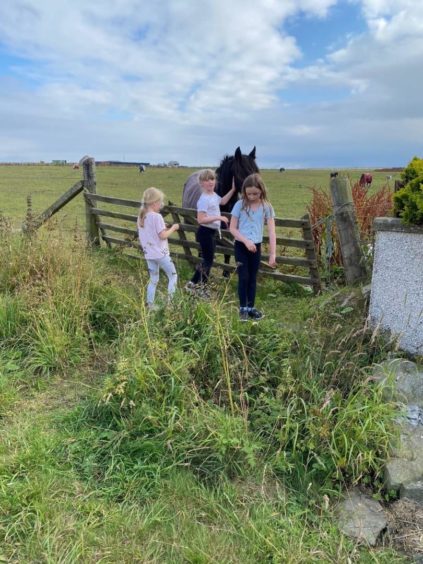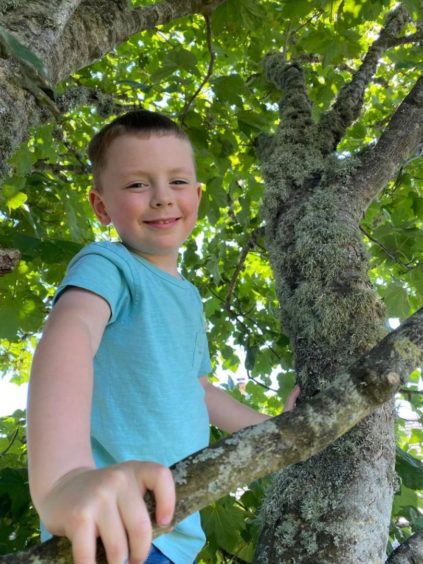Experts say that unsupervised play is “gold dust” in child development.
Yet studies show that most children are 11 before they’re allowed to play alone outside – two years older than their parents were. On average, kids get just an-hour-and-a-half a day to play outside unsupervised.
Now, as we emerge from lockdown, child psychologists say it’s time we reclaimed the great outdoors.
In this in-depth look at the subject, we speak to the experts, unravel the stats – and learn from some parents who have made unsupervised play part of their children’s lives.
The science
“The subject of unsupervised play is so important, especially as we come out of the pandemic and have to learn to go outside again,” says James McTaggart, an educational psychologist with the Highland Council.
“Adults plan a lot for children, but often if they’re allowed more space and flexibility they’ll come up with better ideas than we will. They create customised play ideas based on what they need.
“So if they need to run around and be loud, they’ll do that, or if they need some quiet time they’ll find a bench to sit and chat on. There’s a dialogue to be had here.”
Let kids take the huff
After that, says James, the trick is to stand back. Especially when we’re itching to intervene.
“Children developmentally need to do things that adults don’t approve of,” says James. “They need to fall out over the rules, or pick up their ball and go off in a huff. If adults help too much they don’t get to learn from their mistakes. It’s important for building confidence and self-esteem, and crucial for our ability to cope when things go wrong.
“As adults it’s one thing after another – from an expected bill arriving, a boiler exploding, a serious illness, a pandemic. Unsupervised play develops the skills children need to handle the bad stuff.
“Plus, it’s more fun.”
Dr Alexia Barrable, a lecturer in education and social work at the University of Dundee, says that from the age of six, unsupervised play is crucial in emotional development.
“Unsupervised play is gold for kids,” says Alex. “Children of six, seven, eight, nine, need unstructured time. The self-regulation of emotions such as fear and anger happens in a social group without adults. This ability to regulate our own emotions is a key skill for many aspects of life including academic achievement. Children who learn to self-regulate tend to do better in school, have improved mental health and generally lead happier lives.”
What are safe risks?
Alex and James both point to social and cultural factors in the modern move towards structured, adult-led play dates. Parents work longer hours, with more options for after-school care, clubs and sports. There’s also far more awareness of stranger danger, higher traffic volumes and the exponential growth of technology, which James points out has “made indoors more interesting than it used to be.”
Both Alex and James say that society has become too risk-averse along the way. Alex points to a book by American author James Hind ‘The Coddling of the American Mind’. Hind says that in clamping down on independent play and autonomy, we raise children who lack confidence and resilience.
“From the ‘stranger danger’ messaging of the ’90s onwards, we start to see kids staying indoors much more, and being more heavily supervised,” says Alex. “Yet statistically you’d need to play outside for four hours every day for 30 years to get kidnapped. We’re primed to worry more about the issues that are sensationalised in the media than the more mundane, but real issues, like being hit by a car.”
Instead, Alex suggests that parents flag up and discuss risks with their child, and let them realise their own competence. “By the age of six or seven a neurotypical child will know if something is too difficult, too high or too fast, so it’s important we support them to take what you might call safe risks,” says Alex. “Later, as teens, they’ll use those skills to make crucial decisions, like do I get into this car and do I drive this fast.”
James agrees: “It’s about helping them to be alert rather than fearful, aware rather than afraid.”
Come home when it’s dark outside
Any parent who has watched their child climb a tree or ride off on their bike with their friends will recognise that particular joy. They may also remember it from their own childhood.
Caithness teacher Chris Aitken has fond memories of the freedom he enjoyed as a child. Now, Chris and his wife Caroline are keen to give their boys, Callum, 10, and Finlay, eight, the same opportunities.
“I have amazing memories of freedom growing up in Keiss,” says Chris. “I know it’s a bit cliched to say we were called in when it got dark, but that’s really how life was. We lived either at the harbour, the beach, the rocks, the castle. We fished, made huts, made fires, climbed rocks and jumped in the sea.
“Admittedly we all have the scars to show from our adventures, but in my mind, that was an important process of learning boundaries and safety.”
Fast forward a few decades, and Chris and Caroline’s sons are having similar adventures. Keiss is a small, rural village near a pristine beach and harbour, and Callum and Finlay enjoy exploring in relative safety. Football is a favourite pastime and Chris has also taught the boys bush craft skills including building campfires, dens and even willow whittling with a knife.
There’s a strong emphasis on rules. “We think risky play is a great learning opportunity as long as they are fully aware of the boundaries and that they’re there to keep them safe,” says Chris. “Over the years we’ve had burns, cuts and brain freeze from jumping into the sea in March – but with every incident we have a learning opportunity.”
Neighbourhood watch
Even in less rural environments, there are safe ways to give kids a bit more autonomy. Vicky McPhee Miller lives with husband Simon and their daughters Skyler, eight, and Amelia, seven, in a residential development in Wick.
Like many housing estates, it attracts young families. The streets are full of children riding their bikes, flitting freely in and out of each other’s homes and gardens. Vicky grew up a few streets away from where she lives now, and has similar memories.
“I got to play outdoors from an early age as I was the youngest of four kids,” says Vicky. “I was allowed to go out and play unsupervised with my brothers and sister in the front garden from the age of four and then by six or seven I was allowed more independence.
“There were lots of kids in our area and we all played in one big group, playing either football, man hunt or kerby.”
Skyler and Amelia join their friends outside but have a sound understanding of the rules. They stick to the agreed geographical boundaries, don’t talk to strangers, look before crossing roads and stay together at all times.
Vicky and Simon know the street can get busy, but believe the experience of unsupervised play is one to cherish. “I think they get many benefits from playing outside, such as building on their confidence when calling on friends, and learning to become more independent,” says Vicky.
“They get lots of exercise which they wouldn’t get otherwise as it’s not as much fun going a cycle with Mum and Dad as it is with friends. And the fresh air and exercise help them sleep better at night.”
Independence comes in degrees
Developmentally, these kinds of experiences prepare children for making their way in the world as teens and then adults. Both Alex and James say there’s no magic age or perfect environment. Independence comes in degrees.
For example, you know a child can safely climb a tree on their own because you helped them balance on a log as a toddler, gave them a leg-up as a preschooler, stood ready to catch them when they were a bit older.
Your teenager can probably catch the bus on their own if they’ve done the journey with you before. Can they handle money? Do they have the common sense to know what to do if they miss the bus? These are all indicators of their maturity.
“Think of independence as a bunch of learned skills,” says James. “It’s not age-based, there’s no checklist, it’s a judgement that’s matched to their personality and their environment.”
Alex agrees: “Independence happens incrementally. At eight they might get to walk to school, at nine call at a friend’s house. You start early in building those skills up. That way they’re not just 14 and suddenly jumping on the train on their own.
“Children have unique learning trajectories and different paths. No one way is right. That’s the hard bit about parenting.”
More from the Schools and Family team
‘If you’re four, you’ve spent a third of your life in lockdown’: Scouts launch Squirrels section
Hidden treasure: Everything you need to know about finding your teen’s Child Trust Fund
Outdoor learning: Why schools are breaking out of the classroom and into the real world
